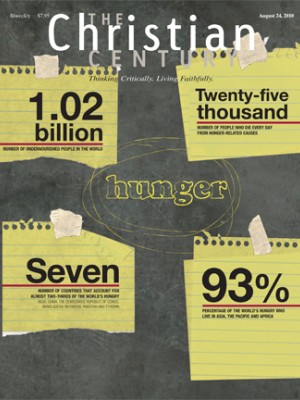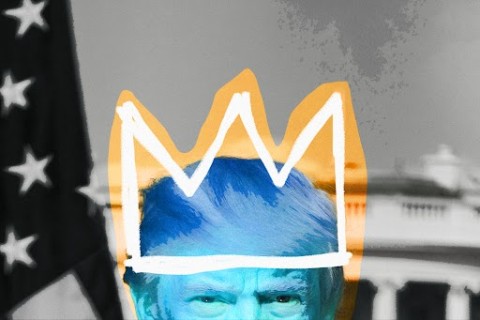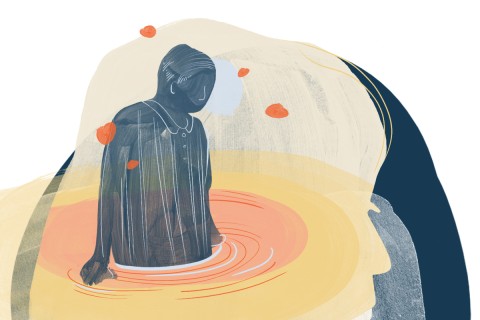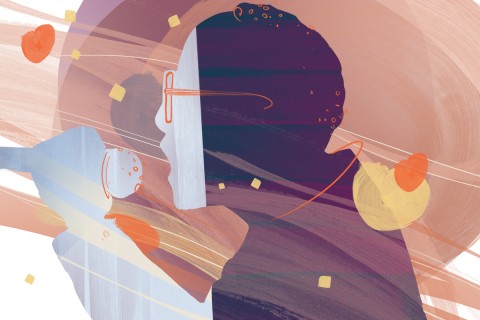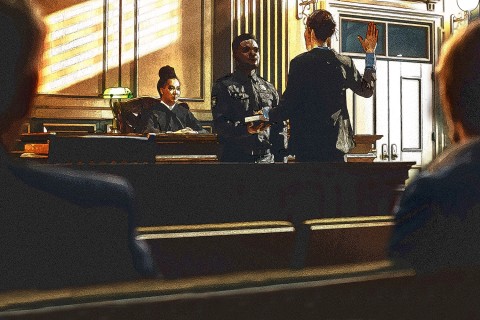A Muslim group quietly prays near Ground Zero
Barely visible among the high-rise apartment buildings and cocktail lounges, a battered steel door in Manhattan's trendy Tribeca neighborhood leads to a basement jammed with barefoot men praying on their lunch break.
The makeshift mosque is a far cry from the proposed 13-story Cordoba House, the so-called Ground Zero mosque that would be two blocks closer to the busy construction site where the twin towers of the World Trade Center once stood. And the leaders of Masjid Manhattan want to keep it that way. "We are not involved with that other group," said Imam Mustafa Elazabawy, raising his voice just loud enough to be heard above the din of the air conditioner, but not loud enough to disturb the Arabic recitations. "We have been here for 30 years, in this neighborhood. Many Muslims also died over there, on 9/11."
Ever since Masjid Manhattan lost its lease on nearby Warren Street in 2008, members have struggled to find a more suitable space for daily prayers. They've also tried to keep a low profile, clearly nervous about prompting the kind of outcry that has plagued the planned Cordoba House project.
Read our latest issue or browse back issues.
Never mind that Cordoba House is neither a mosque nor actually at Ground Zero. Imam Feisal Abdul Rauf, chair of the Cordoba Initiative, insists that the facility will serve as a YMCA-type community center for interfaith bridge-building. The $100 million complex, replacing an abandoned Burlington Coat Factory store, would have a prayer room but also a swimming pool, basketball court, child care services, art exhibitions and a food court serving halal dishes from around the world.
Opponents, including retired New York City firefighter Tim Brown, say a highly visible Muslim organization with international benefactors has no place in the neighborhood, especially not in a building damaged by the attacks.
"We're saying no to the group and no to the location. A mosque in the U.S. that's using foreign money from countries with Shari'a law is unacceptable, especially in this neighborhood," Brown said. "The other group [Masjid Manhattan] lost their lease, and they just want to replace what they already had. That's a lot more understandable."
Brown, who wears a metal bangle on his right wrist engraved with the names of two of the nearly 100 friends he lost on 9/11, demurs when asked what would be a more appropriate distance from Ground Zero for the new Muslim center. Five more blocks away? Fifteen? "You can't put a rule on that," he said. "It's about being sensitive to the families."
Brown has enlisted the services of the American Center for Law and Justice, a conservative law firm founded by Pat Robertson and better known for championing the rights of Christians to build and worship freely. The ACLJ, representing Brown and more than 20,000 people who have signed an online petition for the Committee to Stop the Ground Zero Mosque, has been lobbying the New York City Landmarks Preservation Commission to give 45-47 Park Place landmark status—adding a major hurdle to construction there—because part of one of the hijacked planes had fallen through its roof.
Brown concedes he's doubtful that the site will get landmarked but says the point is to keep raising awareness of the Cordoba House plans and to pressure Rauf to fully disclose the project's funding sources.
"The decision has already been made. But we're going to stay on him and keep exposing his radical ties," Brown said, adding that he and the ACLJ would challenge a landmark status rejection. "The bridge Imam Rauf wants to build is a bridge to Islam, and it's a one-way street."
Publicly, Rauf has expressed confidence that Cordoba House will move forward, noting the quiet but steadfast support from local residents and city officials, including Mayor Michael Bloomberg. "The government should never, never be in the business of telling people how they should pray or where they can pray," Bloomberg told reporters in late July, responding to Sarah Palin and other vocal Republican and Tea Party critics of the project.
Interfaith advocates and religion experts, including Boston University professor Stephen Prothero, author of God Is Not One, have chimed in, objecting to the emerging negative arguments: that Cordoba House should not be built near Ground Zero because it will serve as a symbol of Muslim conquest of lower Manhattan and because Saudi Arabia doesn't allow the construction of churches.
"Since when has Saudi Arabia been the model for American civil liberties?" Prothero asked in his CNN blog. Wondering whether all mosques and other non-Christian houses of worship should therefore be banned as well, Prothero added: "One of America's core values, inscribed into the First Amendment of the Bill of Rights, is freedom of religion."
But less than ten years after the attacks, with Ground Zero still under heavy construction and Americans still facing grave threats from Muslim extremists abroad and at home, the wound is far too raw to be talking about tolerance, Brown contends. "Now is not the right time," he said. "They're telling us that we're against religious freedom? That's backwards. Our friends and families were murdered by these terrorists, who were against religious freedom."
For its part, Masjid Manhattan, crammed into the Warren Street basement, continues to distance itself from the Cordoba House proposal on its Web site and in conversations. Elazabawy says his group would not be interested in moving to the facility, which won't be ready until 2012 at the earliest.
Nodding toward the diverse array of men sitting on the dingy floor—in business suits, track suits and traditional African or Middle Eastern clothing—Elazabawy said his mosque desperately wants more room, but not at the cost of sharing a multimillion-dollar facility and at the expense of community relations. —Nicole Neroulias, Religion News Service


